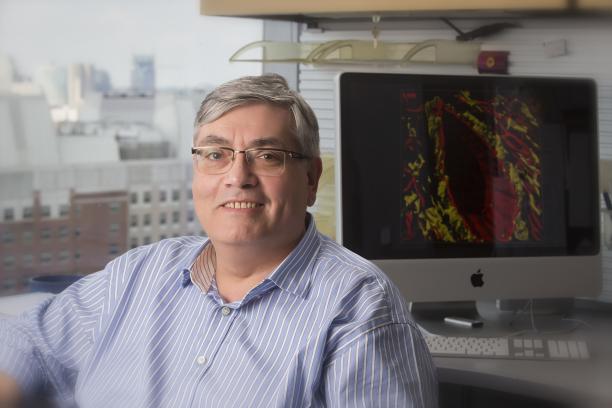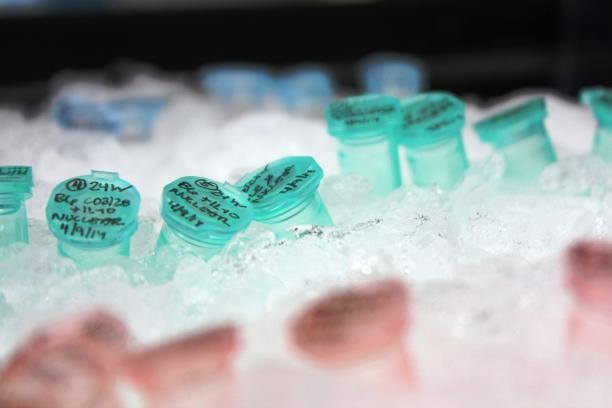Hatzopoulos Lab
Develop cell-based regenerative therapies | Use stem cells as therapeutic units
The research lab of Dr. Antonis Hatzopoulos, PhD, focuses on cardiovascular progenitor cells as a model system to study heart and blood vessel development and as cell therapy tools in adult disease models.
We have shown that in vitro expanded embryonic endothelial progenitor cells form blood vessels after transplantation in the developing embryo.
In adult disease models, we found that vascular progenitor cells are originally recruited to sites of angiogenesis by endothelial P-selectin.
In mouse models of multiple tumors, we demonstrated that the progenitor cells home to hypoxic metastases with high VEGF expression, but spare well-vascularized tumors and normal organs.

Based on these findings, we used the cells as a Trojan horsesa to deliver toxic agents directly to the tumor tissue killing malignant cells and blocking tumor growth. Exploring further the specific accumulation of progenitor cells to ischemic sites in vivo, we found that transplantation of progenitor cells under acute (heart) or chronic ischemia (hindlimb) enhances vascularization and improves tissue recovery.

Our laboratory currently investigates the mechanisms of cardiac cell specification during embryonic stem cell differentiation and the biology of progenitor cells after ischemic injury in the adult heart. We found that canonical wnt signaling is activated during scar formation and is a critical pathway in the activation of endothelial cells and myofibroblasts after experimental myocardial infarction.
We have recently discovered that the BMP antagonist PRDC is an integral component of the regulatory network that fine tunes both Bmp4 expression and signaling activity during heart development, providing novel insights into the molecular basis of congenital cardiac defects.
We currently investigate the role of PRDC in cardiac repair after ischemic injury.
Our laboratory is a member of the Cardiovascular Cell Therapy Research Network (CCTRN) and the Progenitor Cell Biology Consortium (PCBC).
Research Openings
Postdoctoral fellows and graduate students interested in joining the Hatzopoulos lab, please email antonis.hatzopoulos@vumc.org.
Publications
Research from the Hatzopoulos lab is regularly featured in leading journals. Read more on PubMed.